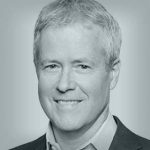
When did you know that you wanted to be a reproductive endocrinologist?
In residency for obstetrics and gynecology, the demand from couples for help conceiving was growing and the technology to help was becoming available and more powerful. It was pretty clear a tidal wave was developing there, so I grabbed a surfboard and hopped on. I developed a model of the pituitary, a plastic chamber that mimicked how our ovulation system worked and I was hooked.
Why do you believe coverage, like Progyny is important?
Building a family is one of the most amazing things a human being can do. So many of us have put the opportunity off to the future and that creates challenges in family building. Progyny is an important resource to create access to care when ready. Education, availability and optimization are all key management goals, and managing that care makes it better and more efficient. Progyny is one of the best companies out there to advocate for patients and assure the best outcomes.
What does family mean to you?
My 3 daughters are the best part of my life. They are all engaged in their respective communities and contributing amazing things. Watching them from birth to maturity as they find their path through life has been incredibly rewarding.
What is one word to describe the impact you have made on a patient’s life?
“Empower”. I help patients discover where they are on their fertility journey and help them empower themselves to evaluate their goals, identify strengths and weaknesses, open opportunities and address challenges.
How do you think the field of reproductive endocrinology will change in the next 5 years, in the next 10 years?
We’ll get better at taking care of our patients as individuals by focusing on personalized analysis of goals and opportunities. I think there will be learer assessment of treatments and outcomes and better patient care systems devoted to helping individuals achieve their goals. I hope our society will find ways to enable women to achieve their fertility goals sooner, and align biology and personal development to allow nature to work its best.